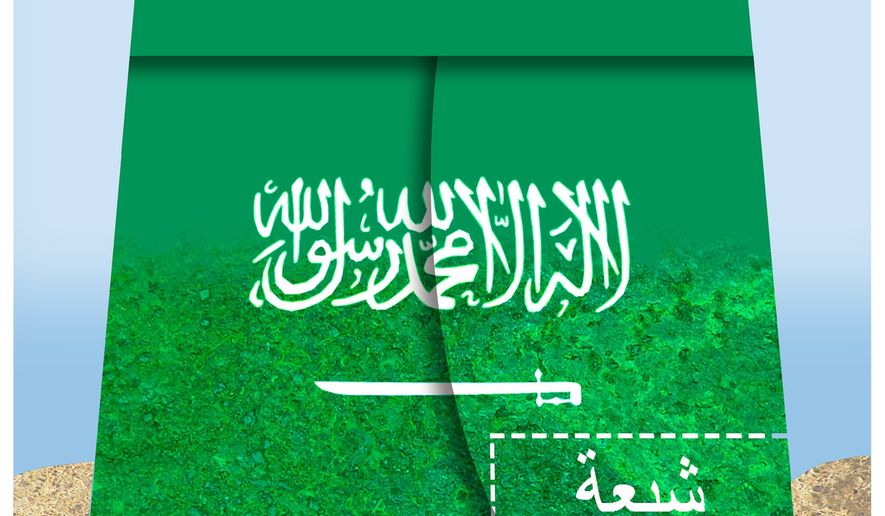OPINION:
DAMMAM, SAUDI ARABIA | Intellectuals of the left and those influenced by them judge the United States and certain European nations as uniquely guilty of imperialism, colonialism, racism, sexism, xenophobia, homophobia, Islamophobia — the list goes on.
But is the West really different from the rest when it comes to the modern sins? Anyone who has traveled in the Middle East, Latin America, Asia and Africa should know that’s not so. Except in this regard: Americans and Europeans constantly and publicly argue over what is fair and what is just, and how our policies and attitudes could be improved. And we frequently — some might say obsessively — apologize for our past and present behaviors.
I’ve been thinking about this quite a bit as I’ve been visiting Saudi Arabia, a country in which the important decisions are made by the royal family and the religious establishment. Everyone else is expected to agree — or at least obey.
Take the controversy raging among Americans and Europeans over how wide to open the doors to those fleeing Middle Eastern turmoil. When the topic is raised here in Saudi Arabia it’s also about whether Americans and Europeans are doing enough — not whether Saudis should be making more of an effort to help their fellow Arabs and Muslims. As for the 10 million foreign “guest workers” in this country, they can live here for generations and still have no opportunity to become Saudi citizens. That, too, is uncontroversial.
The status of women and LGBT people are big issues in the West. Here, being identified as among the latter can lead to imprisonment, fines, flogging or execution. As for the former, under Saudi Arabia’s “guardianship” system, women must cover in public and are not permitted to work or travel without the permission of a father, husband or other male authority figure. Most famously, women are prohibited from driving cars. There are Saudis committed to “women’s liberation” but most recognize that, in this traditional and conservative society, the process will be slow — at best.
The fact that slavery was once a thriving institution in the United States continues to be an open wound. Slavery was a thriving institution in Saudi Arabia as well, but that’s not seen as a stain on the nation’s honor. America abolished slavery in the 1860s. Saudi Arabia did the same — in the 1960s.
It is customary to say that the Saudis “united” Arabia. It would be more accurate to say that Saudi warriors conquered the peninsula’s distinct regions and disparate tribes. In the aftermath of World War I, the Saudis enjoyed significant support from the British Empire, which was instrumental in helping to create Arab nation-states following the defeat and collapse of the Ottoman Empire.
Tribes vying for power, nations conquering other nations, empires rising and falling — that’s the stuff history is made of. Force of arms has almost always and everywhere decided who possesses which territories. So why do so many historians condemn Western imperialism while ignoring imperialism in other forms (e.g., the many great and powerful Islamic empires of the past)?
About 95 percent of the oil produced in Saudi Arabia comes from the Eastern Province, a territory conquered by the Saudis in 1913. The Eastern Province also is where most of Saudi Arabia’s Shia live. According to the best estimates, they constitute between 10 and 15 percent of the country’s overall population. In parts of this region they are the majority.
The oil being pumped from under ancestral Shia lands has not benefited the Shia as it has the Sunnis of the Najd, the central region of the country where the Saudis originated, and of the Hijaz, which includes the ancient Red Sea port of Jeddah, as well as the holy cities of Mecca and Medina. Many Shia say privately (because it is dangerous to say publicly) that they are second-class citizens and face discrimination in education, employment, the military and the judicial system.
One woman tells me that the only Shia who appear on Saudi television are those killing Sunnis in such places such as Syria, Iraq and Yemen. Another says that in Saudi schools both teachers and textbooks denigrate the Shia as blasphemers, “rejectionists,” and “not real Muslims.” She instructs her children to do what’s required to get good grades but not to believe what they’re being taught.
For years, a popular figure in the region, especially among the young, was Sheikh Nimr Baquir al-Nimr. He openly criticized the Saudi government and called for free elections. Failing that, he said, the Eastern Province should have the right to secede. Accused of “seeking foreign meddling,” he was executed just over a year ago.
“In America, you have Islamophobia, here we have Shia-phobia,” said one civil rights advocate. The phrase seems apt because while the overwhelming majority of Saudi Shia are undoubtedly loyal and peaceful, Iran’s rulers have intrigued to recruit agents and incite terrorism.
With some success: Saudi Hezbollah, a Shia group that calls for the overthrow of the government, has assassinated Saudi diplomats abroad and was involved in the 1996 truck-bombing of Khobar Towers. Nineteen U.S. servicemen were killed. Ten years later an American court ruled that the attack was “planned, funded, and sponsored by senior leadership in the government of the Islamic Republic of Iran.”
All this leads me to the conclusion that prejudice and “phobias” are not foibles peculiar to the West. On the contrary, painting “others” with too broad a brush is a natural reflex in societies around the world. What is unusual: the strenuous efforts Americans and Europeans make to overcome that reflex; to teach themselves to cultivate tolerance as a virtue and regard diversity as beneficial. Where else is that happening?
• Clifford D. May is president of the Foundation for Defense of Democracies and a columnist for The Washington Times.




Please read our comment policy before commenting.